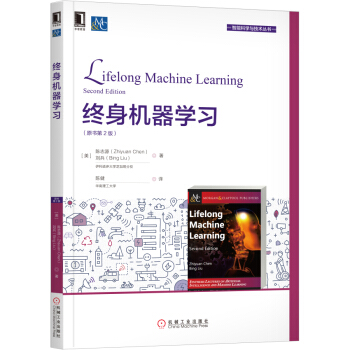元认知策略培训:中国学生英语阅读能力的习得研究
定价:¥29.00
作者: 张炼
出版时间:2012-11
出版社:贵州大学出版社
- 贵州大学出版社
- 9787811265484
- 52625
- 2012-11
- H319.4
内容简介
元认知策略的研究由来已久,但是,何种元认知策略培训模式能切实提高英语学习者阅读水平的研究却为数不多。本研究是阅读能力的习得研究,考察元认知策略培训对于中国高校学生英语阅读能力的影响。由张炼著的《元认知策略培训——中国学生英语阅读能力的习得研究》考察了以下几个问题。第一,高水平和低水平的学生在阅读理解中的元认知策略使用情况;第二,元认知策略培训对其阅读理解的影响;第三,学生的元认知策略使用和英语阅读理解成绩的关系;第四,学生对于元认知策略培训的认识。三个班共58名英语专业三年级的学生参加了为期18周的教学实验。定量分析的数据来自元认知策略问卷调查、阅读理解测试以及半结构化访谈的结果,定性分析的数据来自问卷调查、半结构化访谈以及书面反馈的结果。
研究结果表明,元认知策略培训能显著提高学习者的英语阅读理解水平。元认知策略培训后,高水平和低水平学习者的元认知策略使用水平均达到了较高水平,本研究对两者元认知策略使用的不同及其原因也做了深入分析。同时,研究结果表明,元认知策略和阅读理解成绩之间相关性显著,充分证明了其在阅读过程中的重要性。其中,计划策略和监控策略对于阅读成绩的预测力最强,而评估策略和阅读成绩之间并非任意性关系,非线性相关。此外,对问卷调查和学生书面反馈的数据分析表明,大部分的学生对元认知策略培训持肯定的态度,也有少数持中立或者或否定的态度。本研究表明,元认知策略培训教学模式能有效提高学生的阅读能力,该发现对中国英语教学具有一定的启示意义。最后,本研究对EFL阅读教学提出了相关建议。
研究结果表明,元认知策略培训能显著提高学习者的英语阅读理解水平。元认知策略培训后,高水平和低水平学习者的元认知策略使用水平均达到了较高水平,本研究对两者元认知策略使用的不同及其原因也做了深入分析。同时,研究结果表明,元认知策略和阅读理解成绩之间相关性显著,充分证明了其在阅读过程中的重要性。其中,计划策略和监控策略对于阅读成绩的预测力最强,而评估策略和阅读成绩之间并非任意性关系,非线性相关。此外,对问卷调查和学生书面反馈的数据分析表明,大部分的学生对元认知策略培训持肯定的态度,也有少数持中立或者或否定的态度。本研究表明,元认知策略培训教学模式能有效提高学生的阅读能力,该发现对中国英语教学具有一定的启示意义。最后,本研究对EFL阅读教学提出了相关建议。
目录
CHAPTER 1 INTRODUCTION
1.1 Background of the Study
1.2 Statement of the Problem
1.3 Objectives of the Study
1.4 Research Questions
1.5 Significance of the Study
1.6 Definitions of the Operational Terms
1.7 Outline of the Dissertation
1.8 Summary
CHAPTER 2 REVIEW OF THE RELATED LITERATURE
2.1 Reading Theories: Reading Comprehension Views
2.1.1 A Behavioral-based View
2.1.2 A Cognitive-based View
2.1.3 A Metacognitive-based View
2.1.4 Reading Theories and the Present Study
2.2 Reading Models
2.2.1 Bottom-up Model
2.2.2 Top-down Model
2.2.3 Interactive Model
2.2.4 Reading Models and the Present Study
2.3 Theoretical Foundation: Metacognition
2.3.1 Definitions and Classifications of Metacognition
2.3.2 Metacognitive Knowledge and Reading
Comprehension
2.3.3 Metacognitive Regulation and Reading
Comprehension
2.3.4 Metacognitive Strategies and Reading
Comprehension
2.3.5 Relevance to the Present study
2.4 Pedagogical Foundation: Metacognitive Strategy Training
2.4.1 Studies on Metacognitive Strategies Training in
Reading in Other Countries
2.4.2 Studies on Metacognitive Strategies Training in
Reading in China
2.4.3 Implications for the Present Study
……
CHAPTER 3 RESEARCH METHODOLOGY
CHAPTER 4 RESULTS
CHAPTER 5 DISCUSSION
CHAPTER6 CONCLUSION.
REFERENCES
APPENDICES
1.1 Background of the Study
1.2 Statement of the Problem
1.3 Objectives of the Study
1.4 Research Questions
1.5 Significance of the Study
1.6 Definitions of the Operational Terms
1.7 Outline of the Dissertation
1.8 Summary
CHAPTER 2 REVIEW OF THE RELATED LITERATURE
2.1 Reading Theories: Reading Comprehension Views
2.1.1 A Behavioral-based View
2.1.2 A Cognitive-based View
2.1.3 A Metacognitive-based View
2.1.4 Reading Theories and the Present Study
2.2 Reading Models
2.2.1 Bottom-up Model
2.2.2 Top-down Model
2.2.3 Interactive Model
2.2.4 Reading Models and the Present Study
2.3 Theoretical Foundation: Metacognition
2.3.1 Definitions and Classifications of Metacognition
2.3.2 Metacognitive Knowledge and Reading
Comprehension
2.3.3 Metacognitive Regulation and Reading
Comprehension
2.3.4 Metacognitive Strategies and Reading
Comprehension
2.3.5 Relevance to the Present study
2.4 Pedagogical Foundation: Metacognitive Strategy Training
2.4.1 Studies on Metacognitive Strategies Training in
Reading in Other Countries
2.4.2 Studies on Metacognitive Strategies Training in
Reading in China
2.4.3 Implications for the Present Study
……
CHAPTER 3 RESEARCH METHODOLOGY
CHAPTER 4 RESULTS
CHAPTER 5 DISCUSSION
CHAPTER6 CONCLUSION.
REFERENCES
APPENDICES










